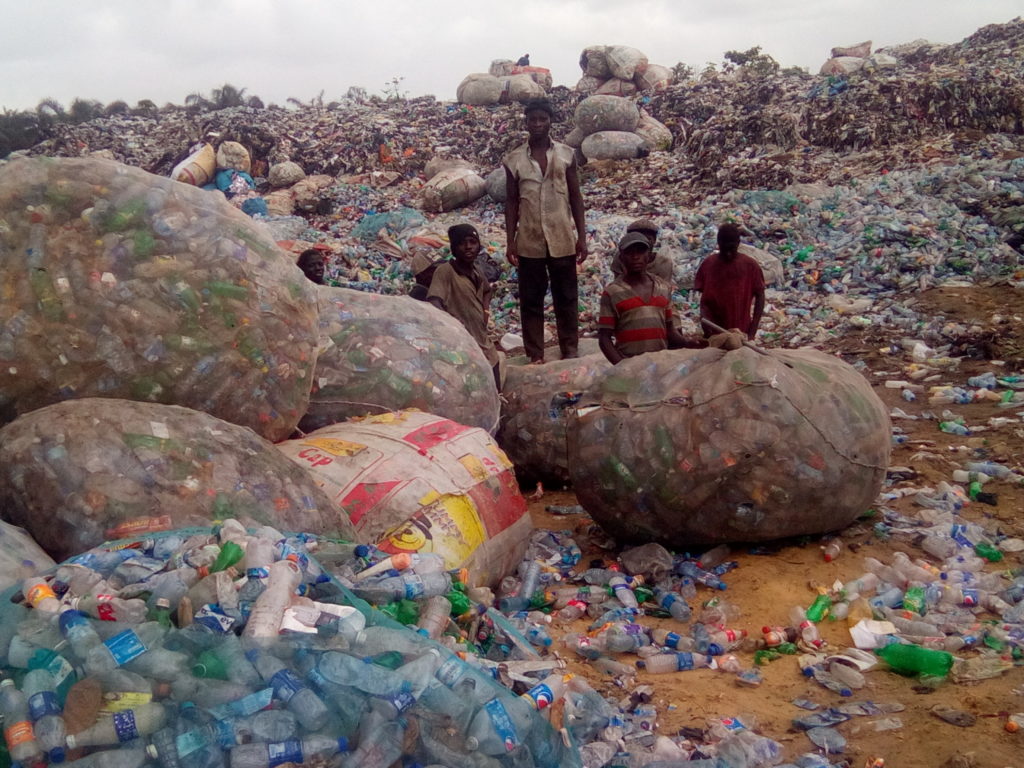Major elements and issues in the Basel Convention plastic waste amendments are missing in the Nigeria National Policy on Plastic Waste Management, the Sustainable Research and Action for Environmental Development (SRADev) Nigeria has said.

In a policy brief made available to EnviroNews on Tuesday, December 14, 2021, the Lagos-based environmental health research and development outfit attributed this to the fact that the Nigeria policy is primarily an in-country document for regulation and control of the use of plastics within the country.
The group added that the Nigeria National Policy has not addressed the issues of trade in plastic waste even though the new Basel Convention plastic waste trade rules became effective on January 1, 2021.
“The new rules apply to all Basel Convention parties as importers or exporters of plastic waste, except those who have formally notified that they are not accepting the amendments,“ stated the brief, adding that the Policy does not recognise that significant amount of imports and exports of plastic waste do occur in Nigeria.
“Hence, reference to this is somewhat scanty in the document. Transboundary movement and trade of plastic waste is not a major issue in the policy, especially under the section on strategic goals where it could have been prominently articulated.“
While the document has assigned to the National Environmental Standards and Regulations Enforcement Agency (NESREA) the role of domesticating various multilateral environmental agreements into national legislation, the Nigeria Customs Service (NCS) has however not been recognised as a key stakeholder government parastatal in the management of plastic waste, especially the control of transboundary movement of plastics.
“It needs to be recognised that NCS will play critical role in enforcement through technical identification of various plastic waste types, and their passage or interception as may be appropriate. NCS will have to collaborate with NESREA in this regard,“ suggested the Brief.
Objectives of the National Policy on Plastic Waste Management were listed to include:
- Make Nigerian cities, ecosystems and human settlements clean, plastic litter-free and sustainable
- Manage carbon offsetting and carbon emissions
- Reduce carbon footprint and benefiting from carbon credit financing
- Ensure sustainable consumption and production patterns that recognise the environmental guiding principles, waste management hierarchy and support the setting of circular plastic economy in Nigeria.
But the document was criticised for not mentioning the Standards Organisation of Nigeria (SON).
“Standardisation is a critical requirement for effective implementation of the plastic waste amendments. In this regard, the limits of contamination and other quality requirements of the products and associated wastes have to be established. Given that plastics are core industrial products, the SON should have responsibilities and roles to play in this regard,“ SRADev insisted.
In the light of the seemingly poor awareness, readiness and action among stakeholders, the group has called for a massive awareness campaign targeting all critical stakeholders, such as Customs, Ministry of Environment, NESREA, Ministry of Industry, Trades and Investments, SON, NGOs, importers, shipping agents, plastics manufacturers and recyclers.
Apart from the establishment of contamination limits to determine what is classified as being hazardous or not, the Brief also called for a review of the National Environmental Regulations for the plastic sector, transposition of Basel Conventions on trade control of plastic waste into national legislations, and training for key enforcement stakeholders.
